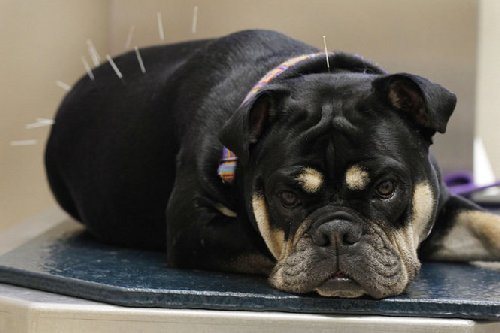 Schaumburg, IL – A pet cat in Wisconsin has reportedly caught the H1N1 flu virus, commonly known as “swine flu”, from its owner, the first case reported in over a year, as announced by Idexx Laboratories on Wednesday. When humans have the flu, we are told to stay home, rest, get better, and definitely don’t expose anyone else to contagious germs. But did you ever think that staying home with your pets could be putting them at risk to contract the flu as well?
Schaumburg, IL – A pet cat in Wisconsin has reportedly caught the H1N1 flu virus, commonly known as “swine flu”, from its owner, the first case reported in over a year, as announced by Idexx Laboratories on Wednesday. When humans have the flu, we are told to stay home, rest, get better, and definitely don’t expose anyone else to contagious germs. But did you ever think that staying home with your pets could be putting them at risk to contract the flu as well?
As the Wisconsin family tended to their own symptoms of the flu, it became apparent that their two cats, a 6 year-old domestic short-hair male, and a 10 year-old female domestic short-hair, started exhibiting signs of respiratory distress. Although the family took both cats to a veterinary hospital, the male cat quickly became worse. Despite being put on a ventilator, he had to be euthanized. In order to determine the cause of the illness, fluid was obtained and tested with the Idexx Feline Upper Respiratory Disease (URD) RealPCR™ Panel, and turned up positive for the H1N1 virus.
The second family cat initially responded well to treatment, but then she had a relapse. She was euthanized eight days after being brought into the veterinary hospital. Her tests were negative but the time for detectable virus shedding is quite short, so her diagnosis is presumptive for H1N1 as well.
The symptoms first noted in both pet cats were severe sneezing and coughing, followed by a fever. Other signs of an illness were nasal discharge, extreme tiredness, runny nose or eyes, and loss of appetite. If any of these signs are noticed in your pet, they should be taken to a veterinarian for testing. Symptomatic treatment should be started right away for the ill pets. There is currently no vaccine for the H1N1 virus in pets.
Other household pets susceptible to contracting an owner’s flu virus are dogs, ferrets, birds, and pigs, studies show, although it is uncommon. Anyone suffering flu-like symptoms should avoid cuddling with pets, and should practice good hygiene like washing hands frequently.
Keep your family pets safe from the swine flu, just as you would attempt to eliminate exposure to people.





